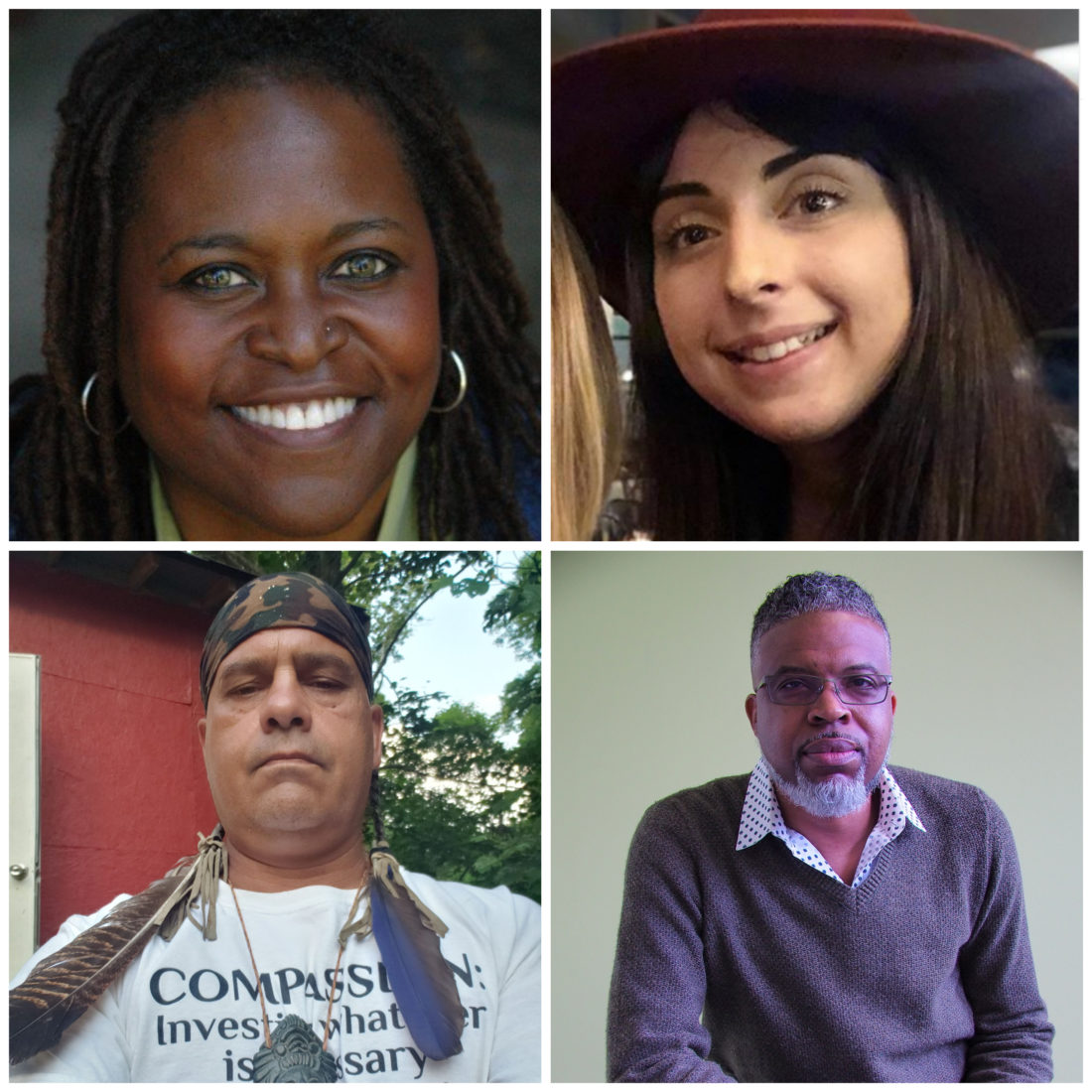Xpress asked Stephanie Hickling Beckman, managing artistic director for Different Strokes Performing Arts Collective; Danielle Dror, Victory Lap Publicity founder; Sekou Coleman, executive director for Asheville Writers in the Schools & Community; and Taino/Cherokee musician Bruce “Akitchitay” Carlino to reflect on the year that was.
How have you managed to persevere and stay optimistic during this strange year?
Coleman: I was already in the process of making some adjustments in my life that significantly helped my perseverance and remaining optimistic. In addition to regular exercise and mindfulness practices, maintaining a healthy diet and a sustainable work/play balance allowed me to keep things in perspective and stay motivated to get done what needed to get done.
Carlino: I used the time to hone my musical skills and stay on the creative mindset. When there is time to fill, it’s good to be productive. I made several music videos to promote my music.
What canceled/postponed local arts experience did you most miss in 2020?
Dror: Every time that an event date passes, I mourn what “would have been.” Some of my staple Asheville-area experiences that I hope to return to next year are Cold Mountain Music Festival, LEAF, Connect Beyond Festival, Downtown After 5 and the Warren Haynes Christmas Jam (and Jam by Day). Each of these events have a very special place in my heart, and while I’m glad to see all the creative ways that event organizers have adapted virtually, nothing beats the camaraderie of celebrating together and in person.
Hickling Beckman: As cheesy as it may sound, I really missed the holiday parade and all the Nutcracker performances at Diana Wortham Theatre.
Which area artists and/or arts organizations do you think were the most innovative this year?
Carlino: Musicians will always find a way to share their magic. Innovation shined with Zoom performances and YouTube videos.
Dror: I have to give a huge tip of the hat to IamAVL this year. They’ve been our resident livestreaming and audio/video masters since long before the pandemic, but the way they managed to expand this year to support nearly every music establishment and event is not only impressive, but a huge reason why a lot of our beloved venues managed to stay afloat.
Hickling Beckman: The Wortham Center for the Performing Arts produced several really cool and creative projects this year, from outdoor dance performances and rooftop concerts to courtyard performances and a guided dance tour of their facility. The Magnetic Theatre has kept it going all year, with virtual and (safely) live programming. I was superimpressed with NC Stage’s livestreamed production of Blood Done Sign My Name, in front of a Zoom audience that was visible to [adapter/performer Mike Wiley]. Most of all, I’d like to give a huge shoutout to all the arts organizations who’ve publicly committed to and have actively started to reevaluate their equity and diversity practices.
In what ways do you feel the events of 2020 will have a lasting impact on the Asheville-area arts scene?
Coleman: This year has certainly taught many people the significance of self-reliance and innovation. I think the result will be a stronger local arts scene with deeper connections to supporters and new audiences. I also think that the year has the potential to change public perception of how and where arts experiences can take place.
Do you think the arts scene will rebound in 2021?
Dror: I have all the faith in the world that we’ll be able to recover, but it’s going to take time, and a serious commitment from our industry power players and respective municipalities to support this cause. I have a feeling that 2021 is going to be the year of “working out the kinks,” but it will be well worth it if we end up with a stronger, more sustainable industry than when we started. We’re all a little shellshocked, but as artists and creative entrepreneurs, we’re masters of trial and error, and I’m certain that we have what it takes to get through this. If anything, this year has shown us exactly what isn’t working in our industry, so now we know what areas to focus on as we make the path toward recovery.
Hickling Beckman: Because we are still working and growing and creating, and being forced to concentrate more on telling stories than showing them when audiences are ready for a show, we’ll hit the stage running and stronger than ever. It’s important to remember that theaters didn’t bounce back immediately after the global flu pandemic of 1918 because people were afraid. But just like the 1918 pandemic, this one will end, and people will get back to living. People who loved the arts before will still love the arts, and along with a few converts, they’ll eventually want to see live performances and go to art museums once again. We’ll be ready.



Thanks for these interesting insights. How have such arts groups as, say, the Asheville Community Theatre, the Asheville Symphony, the Asheville Art Museum, the Black Mountain College Museum, the Diana Wortham Theatre fared during the pandemic?